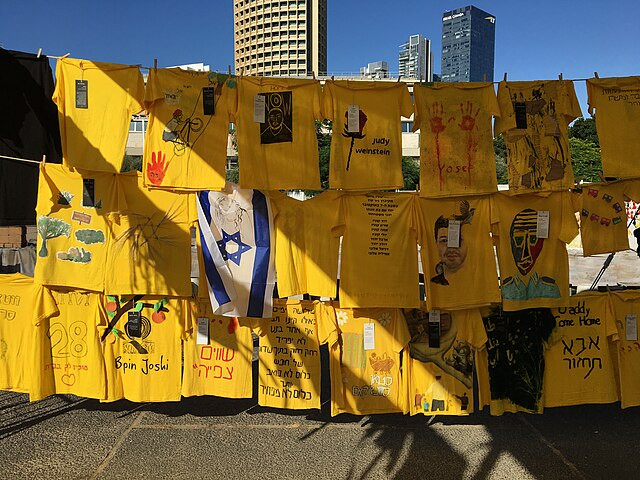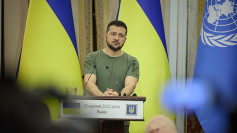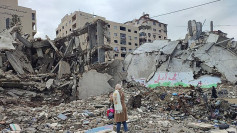Tensions between Israel and Hamas deepened this week as the militant group failed to hand over all the bodies of deceased hostages required under a U.S.-brokered ceasefire, prompting Israeli officials to threaten aid restrictions and accuse Hamas of violating the deal's terms.
Under the truce, Hamas was obligated to return the remains of more than two dozen hostages killed since the October 7, 2023, attacks. The group has said it does not know the locations of all the bodies due to extensive destruction in Gaza, setting up what Israeli officials call the first major test of the two-year-old conflict's ceasefire.
Prime Minister Benjamin Netanyahu said Wednesday that Hamas "must fulfill the requirements laid out in the ceasefire deal" and vowed, "We will not compromise on this and will not stop our efforts until we return the last deceased hostage, until the last one." Israel had previously threatened to cut the number of aid trucks entering Gaza but decided against it after Hamas returned several bodies early this week.
Hamas returned four bodies Monday and another four Tuesday, though the Israel Defense Forces later said one of the remains was misidentified and "does not match any of the hostages." Three of those returned Tuesday were identified as 20-year-old IDF soldier Tamir Nimrodi, father of two Uriel Baruch, and Eitan Levi, described by relatives as "a pampering father and a warm and loving man."
On Monday, Hamas handed over the bodies of Guy Iluz, abducted from the Nova music festival; Nepalese student Bipin Joshi; South African-Israeli dual national Capt. Daniel Peretz; and Yossi Sharabi, remembered by his widow as "a wonderful partner and a perfect father."
According to the Hostages and Missing Families Forum, at least 20 additional deceased hostages remain unaccounted for, including Israeli-American soldier Itay Chen, Tanzanian student Joshua Luito Mollel, and 85-year-old kibbutz founder Amiram Cooper. "We live in a state of suspended mourning - unable to grieve, unable to heal, unable to bury our children," Chen's mother wrote in a statement.
The U.S.-proposed ceasefire, introduced by President Donald Trump, stipulated that Hamas must hand over all living and dead hostages by a deadline that expired Monday. If unable to do so, the group was required to share location data and facilitate the recovery of the remains.
Hazem Kassem, a Hamas spokesperson, said on Telegram that the organization was "working to return the bodies of the hostages as agreed," while accusing Israel of violating the truce with military operations in eastern Gaza City and Rafah. Defense Minister Israel Katz said Israel was acting within the deal's deployment boundaries and warned that "anyone approaching the deployment line will be targeted."
The hostage exchange has also involved the return of Palestinian bodies to Gaza. Forensic experts there began identifying 45 remains transferred through the Red Cross on Tuesday, with Israel expected to deliver more in the coming days. Meanwhile, the Egyptian Red Crescent said 400 trucks carrying food, fuel, and medical supplies were en route to Gaza after aid deliveries were paused for two days due to the exchange process and a Jewish holiday.






